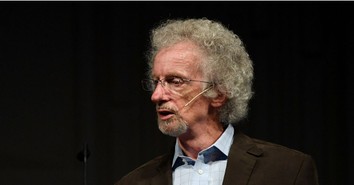Did Early Christians Believe Jesus Would Return in Their Lifetime?

One of the most-oft repeated ideas about the earliest Christians is that they believed that the Kingdom of God would come (apocalyptically) within their own lifetime. In fact Schweitzer famously argued that Jesus himself thought the world would end in his own lifetime; of course the world didn’t end and Jesus died disillusioned on the cross saying, “My God, my God, why have you forsaken me?” (Mark 15:34). In recent years, some have suggested that this belief in early Christianity would even have affected the development of the canon. If Christians thought the world would end in their own lifetime, then, it is argued, they would not have been interested in composing new scriptural books. Thus, the idea of a canon must be a later ecclesiastical development.
But, this argument simply doesn’t hold. First, it is by no means evident that early Christians believed Jesus would necessarily return in their own lifetime. Schweitzer’s views have been largely rejected–and rightly so. But, let’s imagine, for the sake of argument, that Christians did have this apocalyptic mentality. Does that mean they would have resisted the composition of new books, focusing instead on only oral methods of delivery? There appears to be little reason to think so. Ironically, Paul is put forth as one who believed that Jesus would return in his own lifetime (as supposedly indicated by texts like 1 Thessalonians 4:15-17), but yet we only know about this belief because Paul wrote it down in a letter! And Paul viewed this letter, as all his letters, as authoritative (1 Thessalonians 2:13) and to be read publicly to the church (1 Thessalonians 5:27). Such a scenario indicates that apocalyptic beliefs are not necessarily incompatible with the production of written, authoritative texts. Moreover, we have examples of apocalyptic communities that were prolific producers of literature, namely Qumran. On the basis of Qumran, David Meade argues that apocalypticism in the early Christian communities, far from preventing literary activity, actually “provides the ideological basis for the extension of Scripture” (“Ancient Near Eastern Apocalypticism,” 308).
Gerd Theissen sums it up well, “The thesis about the imminent expectation of the end as a factor impeding literary creation is false. Jewish apocalyptic writing is full of imminent expectations and yet attests to a flourishing literary production” (The New Testament, 10).
For more, visit Dr. Kruger's website: Canon Fodder.
Originally published February 15, 2016.







